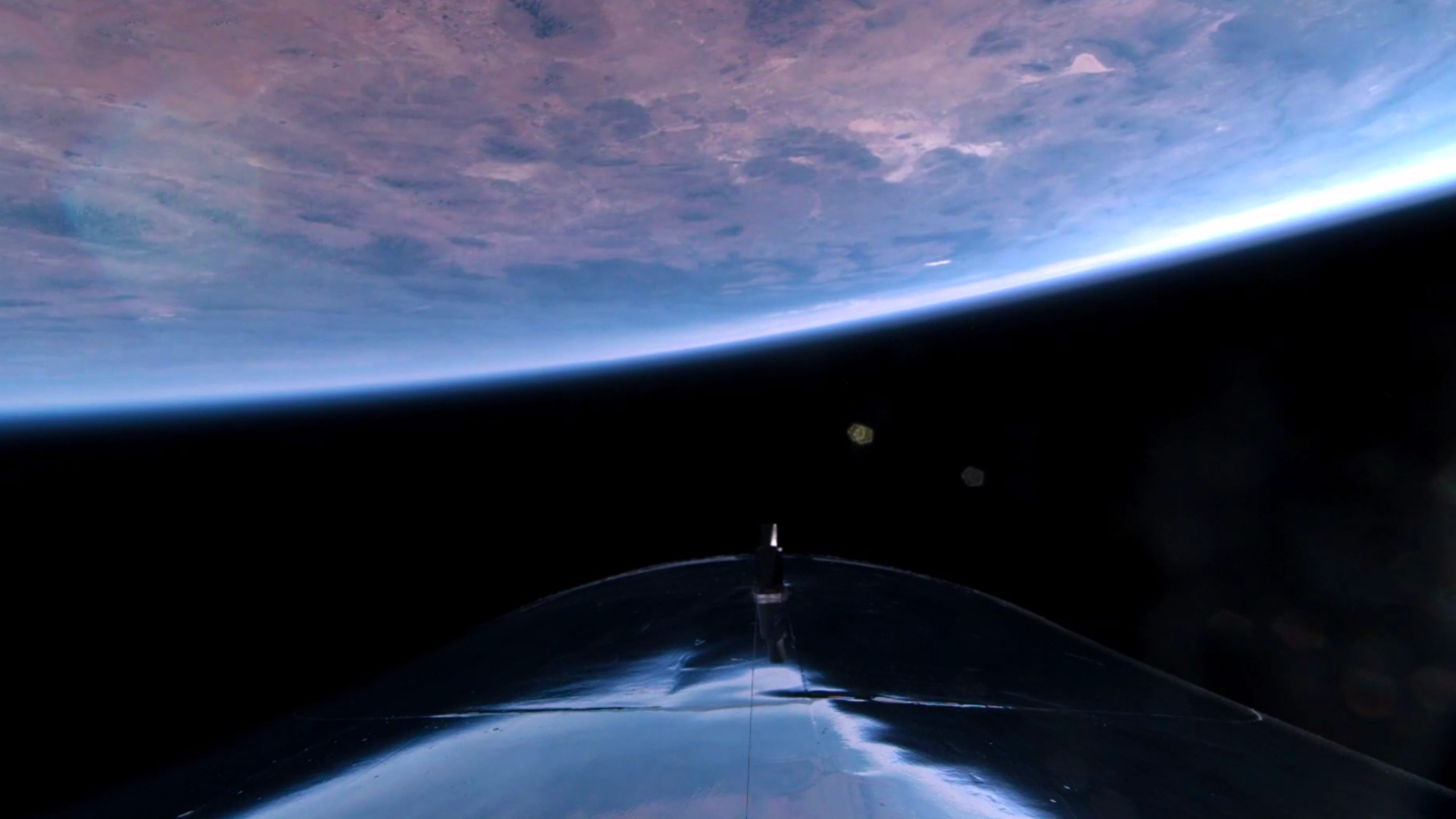
Virgin Galactic's sixth commercial spaceflight will lift off next month, if all goes according to plan.
The mission, known as Galactic-06, is targeted for Jan. 26, Virgin Galactic announced in a statement issued on Tuesday (Dec. 19). The flight will include four private astronauts — one from Texas, one from California, one from Austria and one jointly from Ukraine and California, according to the statement. Names of the participants were not released.
Virgin Galactic, which is part of billionaire Richard Branson's Virgin Group of companies, takes tourists and private astronauts to suborbital space using an air-launched system. That system consists of a carrier aircraft, VMS Eve, that deploys the VSS Unity space plane at an altitude of about 50,000 feet (15,000 meters). On Galactic-06, Unity will be helmed by commander C.J. Sturckow and pilot Nicola Pecile, and Eve will be flown by commander Michael Masucci and pilot Dan Alix.
Related: Virgin Galactic launches researchers to suborbital space on 5th commercial flight (video)
The company finished six spaceflights in as many months in 2023 following a two-year hiatus for hardware upgrades. Some of those flights catered to private tourists, while others also served governmental customers. For example, Walter Villadei of the Italian Air Force commanded Italy's Virtute-1 mission aboard a June 29 Virgin spaceflight, in part as training for his upcoming trip to the International Space Station on Axiom Space's Ax-3 mission, which is slated to lift off on Jan. 9.
Virgin Galactic is expected to ground its Unity space plane in 2024 after perhaps one or two more flights, company representatives have said. The company wants to focus on developing its next-generation "Delta class" space plane that could fly as often as twice a week once it's ready, CEO Michael Colglazier said in a November earnings call, as reported by SpaceNews.
Test flights of Delta vehicles are expected to begin in 2025, with full operational service commencing in 2026. The Virgin fleet, incidentally, does not fly beyond the Kármán Line of 62 miles (100 kilometers), considered by international authorities to be the boundary of space. But U.S. entities use a different boundary, 50 miles (80 km), that Virgin breaches regularly.
Virgin Galactic's main competitor in the suborbital tourism industry, the Jeff Bezos-backed Blue Origin, had a 15-month gap in flights after a September 2022 failure on an uncrewed mission of its New Shepard spacecraft, which is rated for both payloads and people. Blue Origin returned to flight on Tuesday with an uncrewed New Shepard launch and plans to fly people again soon.







